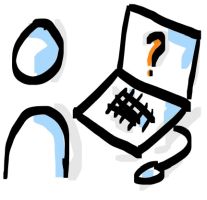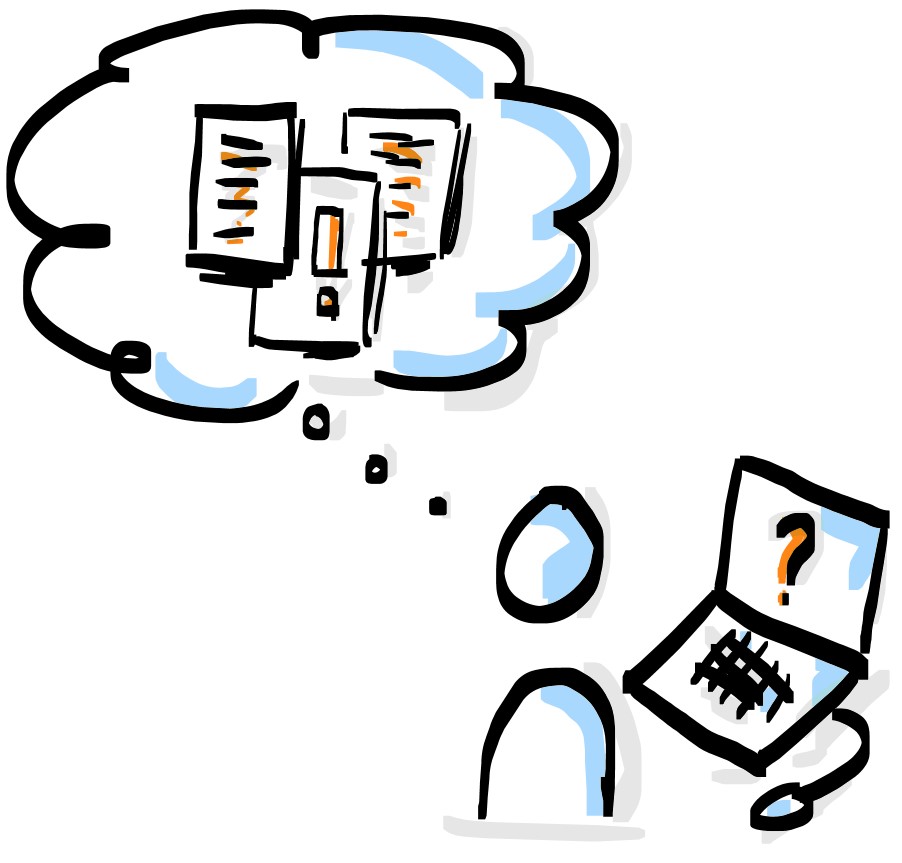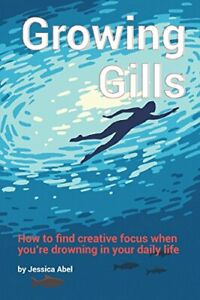“Your page isn’t blanc.”
Jessica Abel
I confess: I like things to be good. I like it, even more, when things are as good as possible. And most of all, I like it to be perfect.
That’s why I’m willing to really put in the effort to achieve a very good result. Whatever that means.
I’m afraid that’s true for pretty much everything I do: Business projects, workshops, coaching, writing blogposts, playing music in the band, volunteering…
Well, I still can’t find much to criticise about that. Even if this idealistic commitment has personally taken me to very, very dark places. Yet I am really not the only person in our high-performance world, where performance, advancement and excellence are the only things that matter from childhood onwards.
So what’s wrong with ambitious goals and high commitment?
 Well, what bothers me, for example, is that it troubles me. Because paradoxically it prevents me from doing what is so important to me: Being very good and feeling good about it. I often don’t go for good, creative ideas at all!
Well, what bothers me, for example, is that it troubles me. Because paradoxically it prevents me from doing what is so important to me: Being very good and feeling good about it. I often don’t go for good, creative ideas at all!
Because the perfectionist in me whispers to me: “Good idea. But CAN you do it? Are you allowed to do it? Are you WELL PREPARED for it? Do you REALLY have everything it takes? And anyway, is this REALLY a good idea? One that CAN be implemented PERFECTLY?”
In such moments I often lose confidence. I tell myself that I know too little, that I have too little experience.
“Don’t even think about it!”
And of course I will NEVER have all the know-how or experience it takes to do it well, very well or completely perfectly. So before I can get started, I would have to study this and that, read these books, do these courses, collect these certificates, etc.
That much effort? Don’t even think about it.
“Challenge Accepted!”
Alternatively, I’ll accept the challenge. After all, if it’s a good idea, it’s worth the effort. So I study this and that, read these books, do these courses, collect these certificates.
Both approaches are smart. That is, when I really don’t bring enough resources with me to realise a good idea. Or the preparation is really too time-consuming. Or the idea is simply not good enough.

However, the world of perfect ideas and projects never merely offers these static possibilities a la “all or nothing”. Ideas and projects develop in a dynamic and complex way. They become good to very good to perfect only by trying them out, changing them, developing them. By not allowing them to be perfect at first, by deliberately leaving them unfinished, unclear. By gradually shaping them into something good, very good or perfect. By learning and growing with them.
So I have resolved to deal with my idealistic perfectionism differently. By taking the creative risk of starting with the imperfect, with the desired good result in mind. But otherwise to pay more attention to the process and learn to enjoy it. Also to enjoy the fact that things are developing – hopefully well.
And also: To trust in myself, my existing know-how, my current experience and my own intuition more often right from the start.
A sentence by Jessica Abel was very helpful for me: She coaches creatives and authors who often struggle with exactly this problem. She tells them: “Your page isn’t blanc. Just release it.”
“My page is not blank.”
The perfectionist and the security officer of my inner team quickly came to terms with this. Because they realised it is true. My page is not empty. Relying on my experience and knowledge, that’s a good way to achieve very good results. It helps me to act professionally.
Maybe, it could do for you, too?
What Else Comes to My Mind
- Jessica Abel

- Jessica Abel: Out on the Wire : The Storytelling Secrets of the New Masters of Radio. (Book)
- Jessica Abel: Out on the Wire: the Storytelling Secrets of the New Masters of Radio (Podcast)
- Jessica Abel: Growing Gills
- Gigerenzer, Gerd: Risk Savvy. How To Make Good Decisions

Vielleicht kommen der Perfektionist und der Sicherheitsbeauftragte in dir auch zueinander, wenn du darauf vertraust, dass es nicht um Perfektion geht sondern darum, was du lernen kannst und was du besser machen kannst. Über bildgebende Verfahren konnte herausgearbeitet werden, dass unsere Hirne am “glücklichsten” sind, wenn wir was gelernt haben. Also: Machen ist wie wollen, nur krasser!